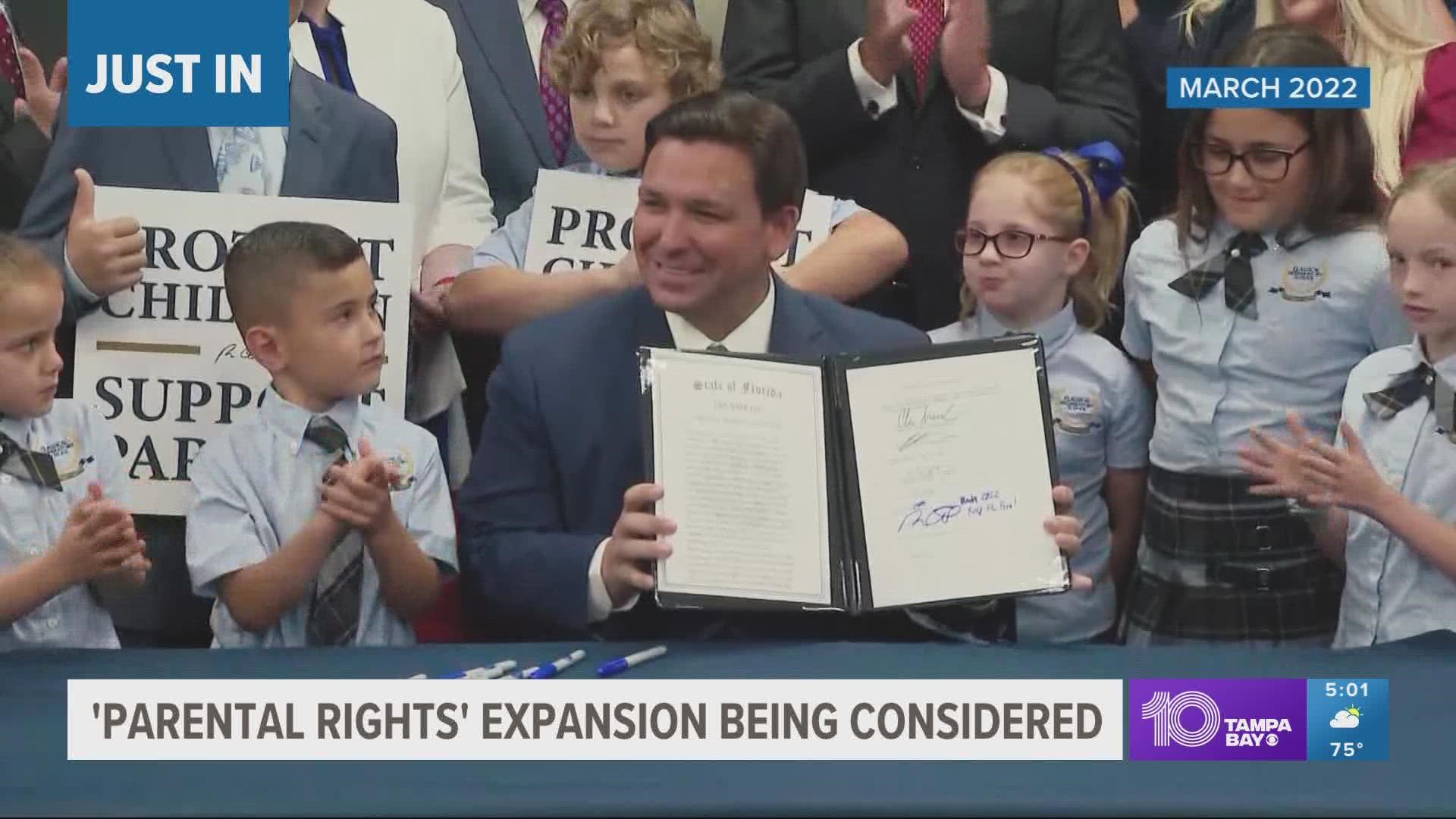TALLAHASSEE, Fla. — The controversial "Parental Bill of Rights" could be expanded in the upcoming legislative session thanks to a new bill filed in the Florida House of Representatives.
If passed, the bill would now prohibit teaching about sexual orientation and gender identity through middle school, and only allow "age-appropriate" instruction in high school.
Under the current law — dubbed by critics as "Don't Say Gay" — instruction on these topics is prohibited in public schools from kindergarten through third grade.
HB 1223, filed by Rep. Adam Anderson, R-Palm Harbor, expands on the current law and would apply to prekindergarten through eighth-grade student instruction. If it becomes law as is, the same prohibitions would apply to charter schools and private pre-K providers.
The bill would also establish rules about using preferred pronouns and personal titles.
"It shall be the policy of every public K-12 educational institution that is provided or authorized by the Constitution and laws of Florida that a person's sex is an immutable biological trait and that it is false to ascribe to a person a pronoun that does not correspond to such person's sex," the bill's text said in part.
This would mean no one working or attending a public K-12 school would be required to use someone's preferred personal title or pronouns "if such personal title or pronouns do not correspond to that person's sex," particularly if the requirement is a condition of employment, enrollment or participation in any program.
Additionally, anyone working at a public K-12 school can't provide a student "his or her preferred personal title or pronouns if such preferred personal title or pronouns do not correspond to his or her sex."
News of a possible expansion to the law came out in December, with Gov. Ron DeSantis' office confirming he would be supportive of expanding the law to middle schoolers. This was in response to comments made at the time by Florida's new Senate President Kathleen Passidomo, R-Naples.
Passidomo said at the time she would be open to expanding the law, although said such restrictions would be supported through at least sixth grade.
“The schools are not supposed to be raising our kids,” she told a handful of reporters during a press conference in December. “It should be the parents, and that’s really what the intent of the bill was.”
Currently, the law signed by DeSantis last March bars classroom instruction about sexual orientation and gender identity in kindergarten through third grade. Beyond third grade, it requires such instruction to be “age or developmentally appropriate” for students.
Passidomo said she wouldn’t be supportive of expanding the prohibitions to high school.
“Because kids in high school are hopefully a little more mature, or at least they should be,” she said. “But the middle school, maybe go up to sixth grade."
Critics who dubbed the legislation "Don’t Say Gay" prior to its passage expressed concerns it could lead to discrimination against the LGBTQ+ community.
While the word "gay" does not appear in the law, opponents fear it’s having a chilling effect in Florida's schools.
In Hillsborough County, the Bay area’s largest school district was notified by the state that its LGBTQ+ critical resource and support guide for staff outlining restrooms, gender pronouns and coming out was not in compliance with the law. The policy is currently under review as the school board determines how to proceed.
In Pasco County, the district announced it will no longer utilize “safe spaces” and will no longer display “safe space” stickers in response to the law, which also requires school officials to notify parents of changes in their child's behavior. The superintendent argued the safe spaces make it unclear to staff when a student's behavior warrants reporting.
In Central Florida, yearbooks were initially held from being distributed because of images of students holding rainbow flags and a “love is love” sign while protesting the law. But after an outcry from students and parents over censorship, the school board overruled the superintendent's plan to cover up the photos.
10 Tampa Bay's Josh Sidorowicz contributed to this report.

